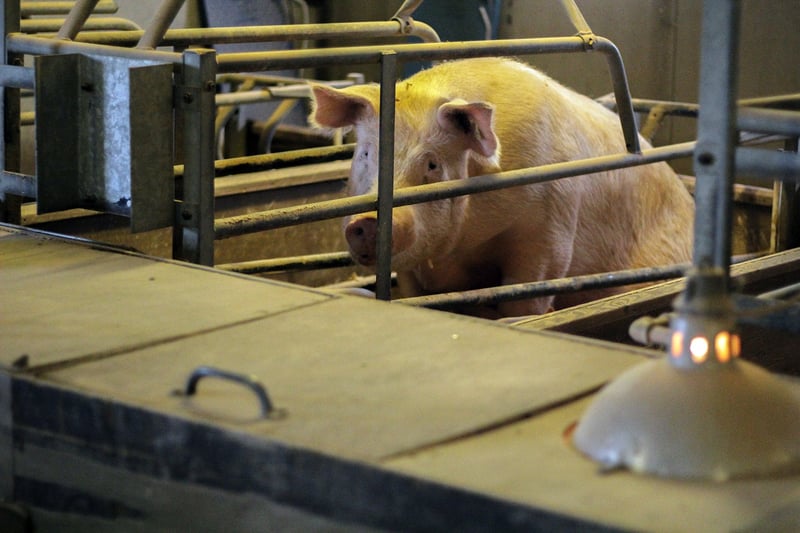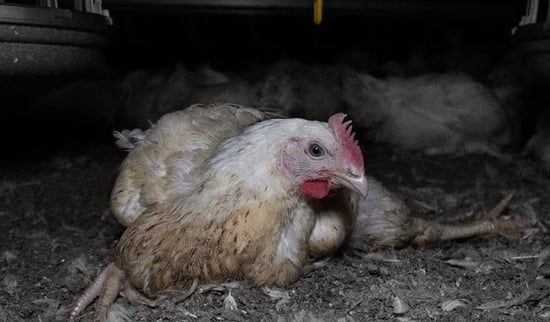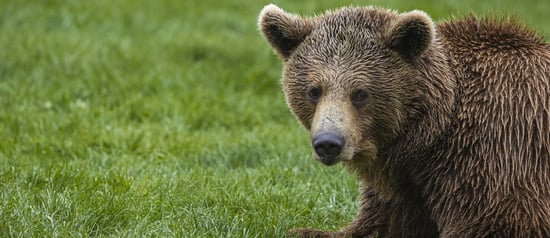
Why we're turning our attention to helping pigs
News
There are approximately 1.4 billion pigs in the world, and the majority of those pigs don't have lives worth living.
We sat down with Jacqueline Mills, our Head of Campaigns, to gain some insight into the importance of our work to improve the lives of pigs.
While the issues surrounding pigs in farming are complex and multi-layered, the focus of our campaign will be as it always is, to tackle the most pressing animal welfare issues associated with pig suffering.
The aim of our campaign
When asked about the objective of our campaign, Jacqueline described the targets of our work to be "the biggest pig production markets across the world with a focus on China (which raises half of the world's pigs), Thailand, the U.S., and Brazil in particular.
Steel cages (farrowing crates), restrict the movement of mother pigs (sows), and means they can see but not reach her piglets to care for them properly.
We'd like to see these animals lead good lives with an opportunity to express natural behavior and socialize, free from the confines of cages and painful mutilations."
Due to the shear number of pigs and farms in those countries, the challenge lies in sparking mass change across a massive industry. As Jacqui says, "We know that this is no easy ask because there are approximately 1.4 billion pigs in the world, so we need to focus our efforts. Over the course of our three-year campaign, we are looking to impact 172 million pigs raised for meat and up to 4.6 million mother pigs, and we will do this in two ways:
- Building on the great work that we’ve done with big producers in China, Thailand, and Brazil, to pilot new welfare practices and ensure that they are introduced correctly across their businesses so that the industry and competitors take notice.
- Moving supermarkets across the world to use their power to provide better lives for pigs on farms and calling on people to urge supermarkets to change the way that they deal with their suppliers.
Supermarkets will listen to their customers, and have the power to make change."
Building a movement
Efficiency will be key, we must target the root of the problem in countries where the majority of pork is produced, and where industry leaders will help us grow the movement.
Jacqueline recalled one of the previous successes that we've achieved in Thailand, in which their largest pork producer (and one of the world's top 20) made the decision to end confinement of mother pigs in cages by 2027. This decision had a demonstrable impact across the Asian landscape.
In October of 2017, Zhejiang Qinglian Food Company Ltd (Qinglian) became the first Chinese company to commit to ending the use of cages for mother pigs during pregnancy. The company produces 200,000 pigs a year from 7,000 sows.
Jacqueline believes that there is opportunity to influence more top producers. "We are hoping that as this momentum to end the confinement of sows (mother pigs) grows around the word, pig production as a whole will change."
Why pigs?
The majority of animals farmed for food live in conditions that cause suffering and stress. It’s time to rethink farming. For pigs subjected to life on a factory farm, they will likely never feel the earth beneath their feet, never see natural daylight, and never experience happiness amongst their fellow pigs.
Jacqueline laments that at the moment, pigs are "sentient animals that are treated like nothing more than cogs in a wheel."
We're calling on the food industry to make a change.
Follow us on social media to stay updated on our work with pigs and other animals.
We'd like to see these animals lead good lives with an opportunity to express natural behavior and socialize, free from the confines of cages and free from painful mutilations.
Factory farming
Factory farming does not just inflict unimaginable suffering on billions of animals, but the intensive and cruel methods also lead to the destruction of habitats and release climate-changing greenhouse gas emissions into the atmosphere.
Our work
We're working in Australia and around the world to end the needless suffering of animals by inspiring people to change animals’ lives for the better.


